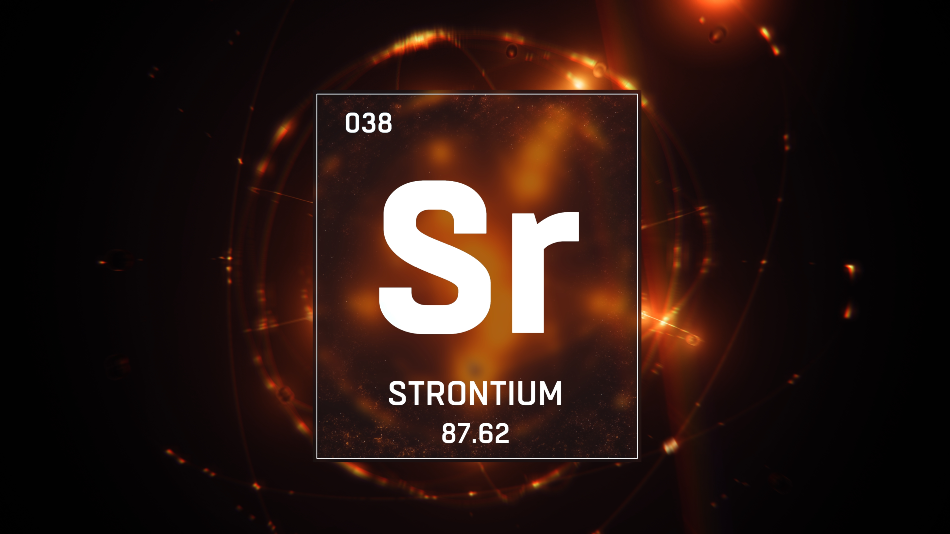Feb 7 2003

remotevfx.com / Shutterstock
In 1790, Strontium (Sr) was discovered by Adair Crawford. However, only in 1808, the element was isolated through electrolysis by Davy.
Occurrence
Strontium is normally found in the minerals strontianite (SrCO3) and celestite (SrSO4).
Extraction
Strontium can be derived through the electrolysis of fused chloride mixed with potassium chloride. Another option is to make strontium by reducing strontium oxide with aluminum at a temperature sufficiently high to distill off the element.
Key Properties
- Strontium is softer than calcium and tends to decompose actively in water
- Should be stored in kerosene to prevent oxidation
- Fine strontium powder ignites spontaneously in air
- The appearance of freshly cut strontium surface is silvery, but tends to oxidize quickly and appears yellowish
- Does not absorb nitrogen below 380 °C
Key Applications
- Strontium titanate has a very high refractive index, and an optical dispersion greater than that of a diamond. This has resulted in its use in gemstones, though it has been found to be extremely soft.
- Generally, strontium is used in applications where calcium and barium are used.
- Volatile strontium salts create a bright crimson flame and are employed in pyrotechnics.
- The isotope Sr90 has a half-life of 28 years and is one of the well-known high-energy beta emitters. Hence, it is employed in systems for nuclear auxiliary power (SNAP) devices, which find potential applications in remote weather stations, space vehicles, navigational buoys, etc.